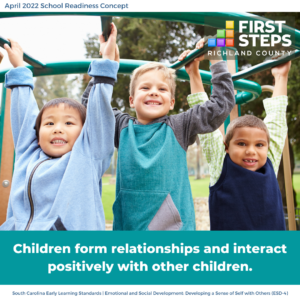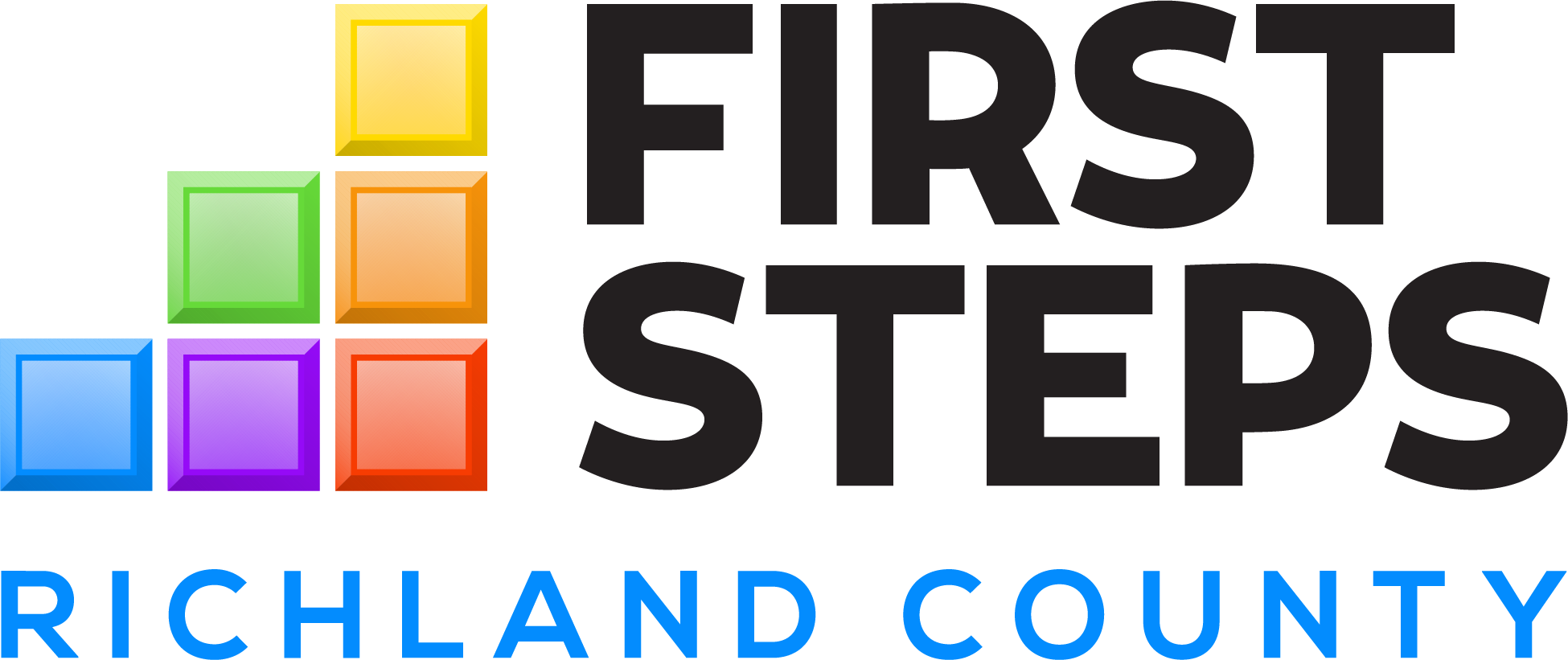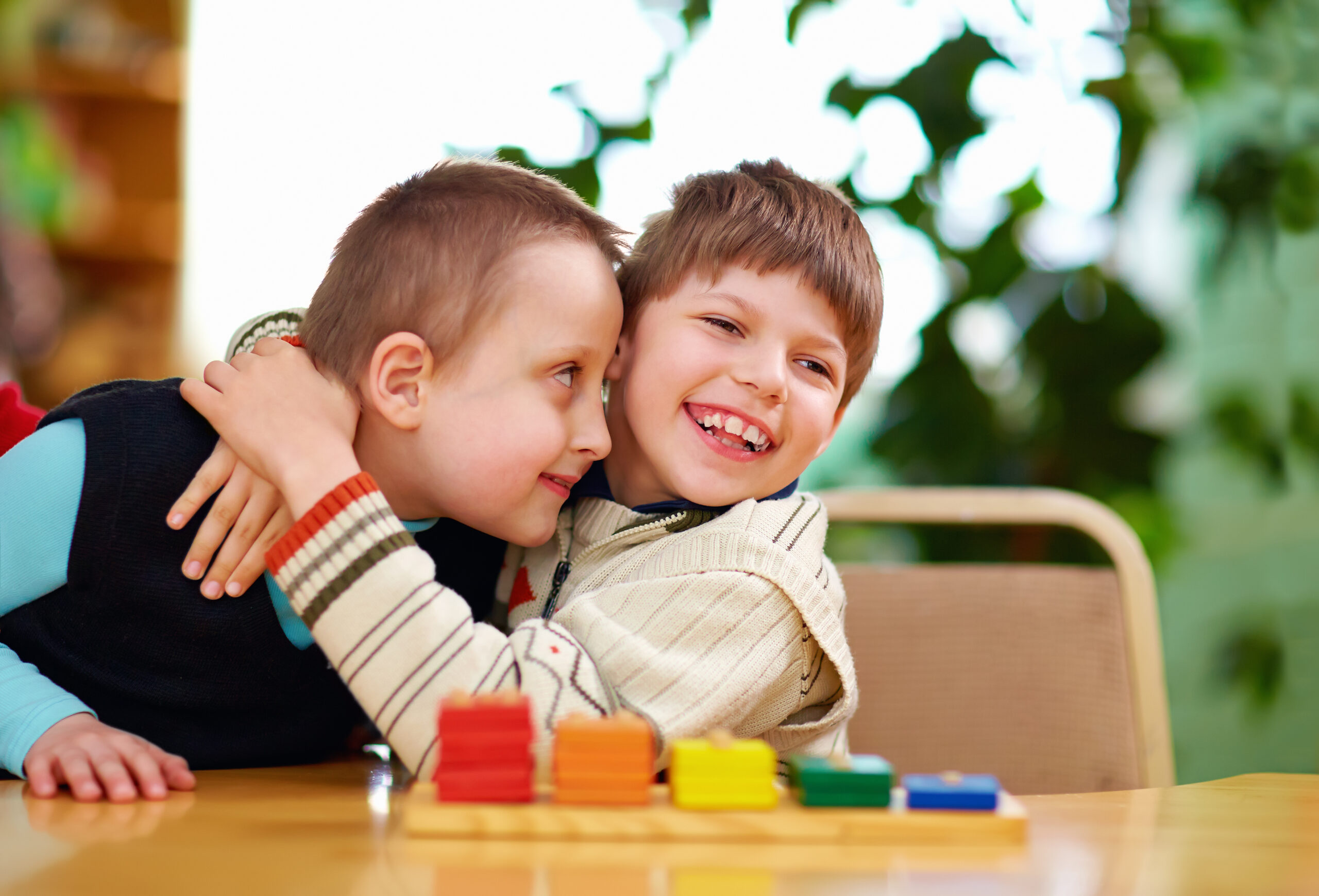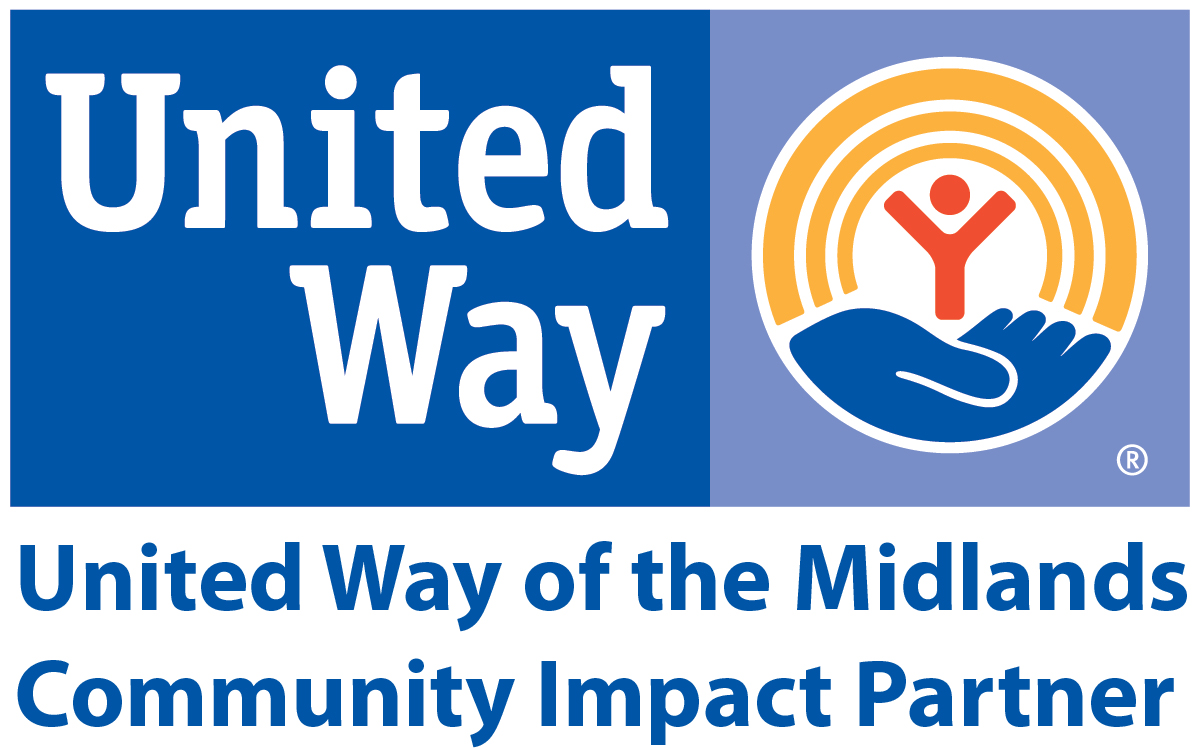
Each month, Richland First Steps selects one school readiness goal from the SC Early Learning Standards (SCELS) to spotlight throughout our programs for children, families, and child care providers.
This month’s concept comes once again from the Emotional and Social Development domain of the SCELS. Like all of the standards, there are developmental indicators that show a child’s progress on this goal at each stage:
Infants (Birth to 12 months)
- Notice other infants and children (look at them, turn in other’s direction, reach for them, touch them).
Younger Toddlers (8 to 21 months)
- Show pleasure at the arrival of familiar peers.
- Enjoy playing alongside other children.
- Imitate actions of older siblings and playmates.
- Offer toys and objects to other children
Older Toddlers (18 to 36 months)
- Show affection or preference for particular children (spontaneously hug, want to play, call child a friend).
- Remember and use names of familiar playmates.
- Use appropriate words to influence playmates’ behavior (“Play with me.” “Stop hitting me.”).
- Participate in play with other children.
- Show positive emotion and turn-taking with familiar playmates (agree to chase each other, watch and imitate each other’s play with toys).
Younger Preschoolers (36 to 48 months)
- Demonstrate social skills when interacting with other children (turn-taking, conflict resolution, sharing).
- Form and maintain friendships with a few other children.
- Identify another child as a friend.
- Approach other children easily, expecting positive interactions.
- Show ease and comfort in their interactions with familiar children.
Older Preschoolers (48 to 60+ months)
- Demonstrate social skills when interacting with other children (turntaking, conflict resolution, sharing).
- Form and maintain friendships with other children of diverse cultural backgrounds and abilities.
- Seek and give support to children they identify as friends.
- Use language effectively to have conversations with other children and influence another child’s behavior (negotiate sharing a toy, plan how to build a block tower together).
- Play and interact cooperatively with other children (work on project together, exchange ideas).


